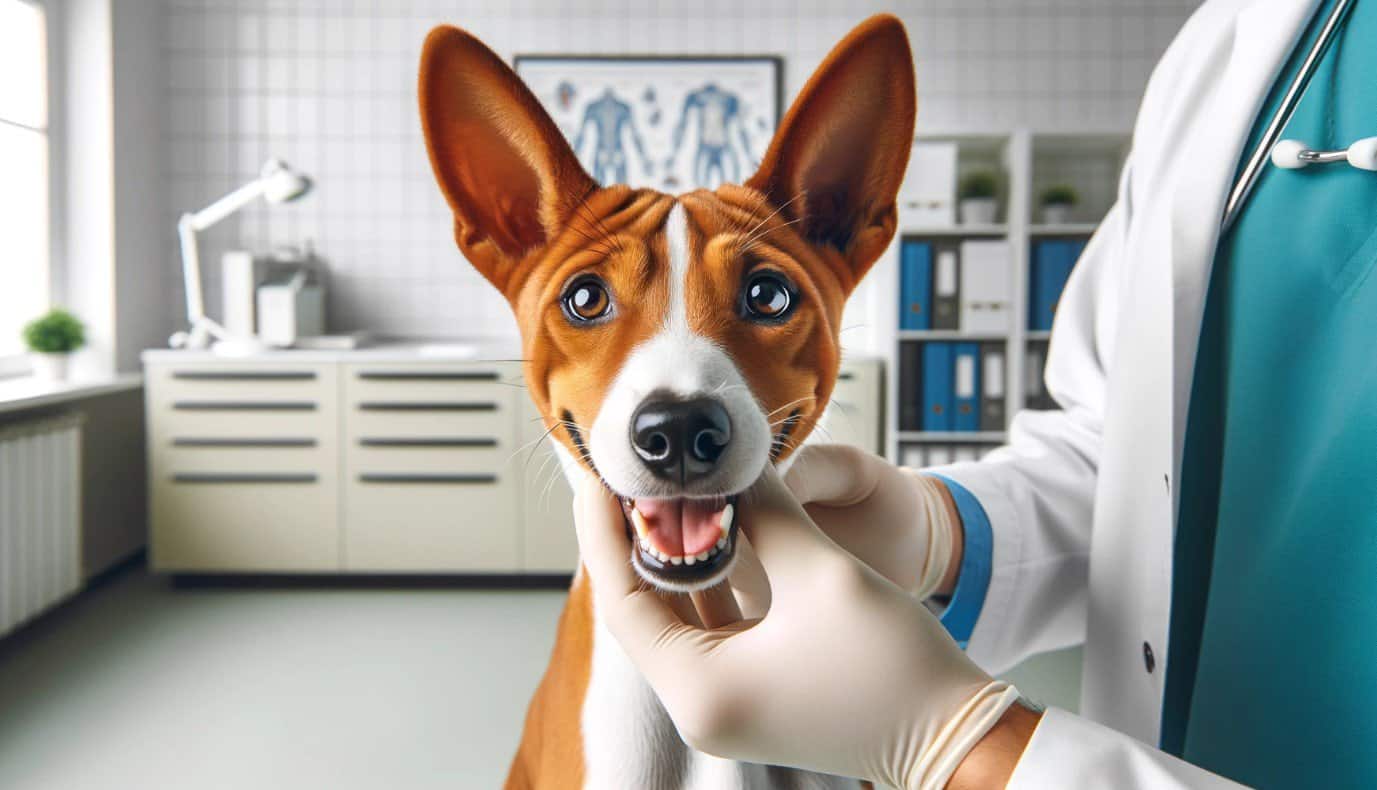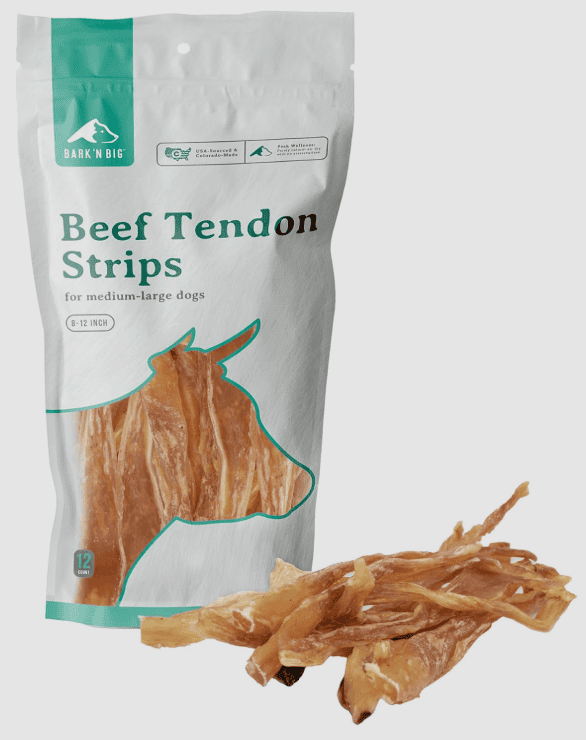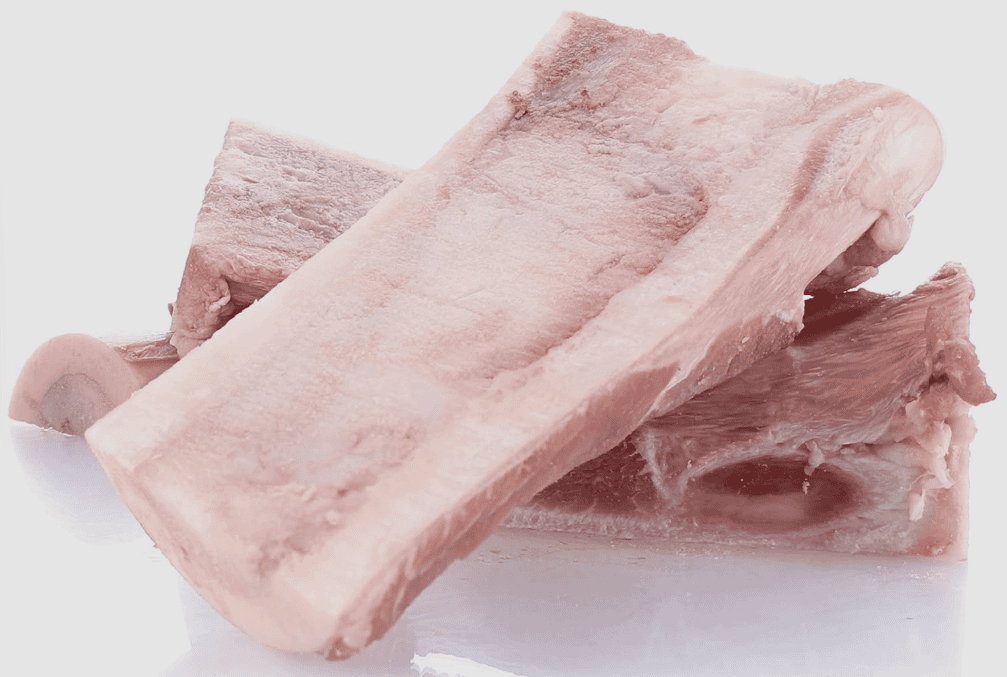Hi there, fellow dog lover! I’m Dr. Candy, your friendly holistic veterinarian. Today, we’re going to talk about something very important – Basenji Dental Health. Now, I know what you’re thinking, “Dental health, really?” But trust me, it’s more important than you might think.

Did you know that dental health issues can lead to serious health problems for your beloved Basenji? It’s true! Poor oral hygiene can result in diseases that affect not just their mouth, but their heart, kidney, and liver as well. It’s not just about fresh breath and white teeth – it’s about overall health and longevity for your furry friend.
So, let’s get into it. We’ll discuss the signs of dental disease, common dental health issues in Basenjis, and conventional treatments. But don’t worry, I’ll also share my holistic approach to oral and dental health, along with my recommended dental chews and products. Let’s work together to keep that Basenji smile bright and healthy!

Signs of Dental Disease in Basenji
Let’s dive right into the heart of the matter. Knowing the signs of dental disease in your Basenji is paramount. It’s about much more than just keeping their pearly whites sparkling. It’s about maintaining their overall health and happiness.
One of the first signs of dental disease you might notice is bad breath. While your Basenji’s breath might not always smell minty fresh, a particularly foul odor can be an indication of an underlying dental problem.
Another sign is a change in eating habits. If your Basenji is usually enthusiastic about mealtime but suddenly becomes hesitant to eat, dental disease could be the culprit. They may also chew on one side of their mouth, drop food, or swallow food whole.
You may also notice physical signs such as yellow-brown tartar build-up on the teeth, especially at the gum line, or red, swollen, or bleeding gums. These are all signs of periodontal disease, a common dental health issue in Basenjis. In severe cases, your Basenji might even lose teeth or suffer from abscesses.
Behavioral changes can also indicate dental disease. Your Basenji may seem less playful or may paw at their mouth. They might also become more irritable due to the discomfort.
Remember, our furry friends are masters at hiding pain. So, even if they aren’t showing obvious signs, regular dental check-ups are vital to catch potential issues early. It’s also important to note that while these signs can suggest dental disease, they can also indicate other health issues. So, any changes in your Basenji’s behavior or appearance should warrant a trip to the vet.
Understanding these signs of dental disease in Basenjis is the first step in ensuring your pup’s dental health. But remember, prevention is always better than cure. Regular teeth cleaning, a healthy diet, and the right dental chews can go a long way in maintaining your Basenji’s dental health.
Keep an eye out for these signs and remember to prioritize your Basenji’s dental health as part of their overall wellbeing. After all, a healthy mouth leads to a happy, healthy Basenji.
Common Dental Health Issues In Basenji
As a veterinarian, I often treat Basenjis for a variety of dental health problems. Basenji Dental Health is a matter of concern for many dog parents, as these dogs are prone to certain dental diseases due to their unique genetic makeup and lifestyle.
One of the most common issues I see is periodontal disease. This is a condition where the gums become inflamed and infected due to plaque and tartar build-up. If left untreated, it can lead to tooth loss and other serious health complications. Basenjis are particularly susceptible to this condition due to their small mouths and crowded teeth.
Tooth decay is another common problem. Just like in humans, this occurs when bacteria in the mouth break down sugars in food, producing acids that erode the tooth enamel. Regular teeth cleaning can help prevent this issue.
Some Basenjis may also suffer from broken or fractured teeth, often as a result of chewing on hard objects. This can be very painful and may require veterinary intervention.
Lastly, bad breath is a common issue in Basenjis. While this may seem like a minor concern, persistent bad breath can be a sign of underlying dental or gastrointestinal issues.
As a pet parent, it’s important to be aware of these common Basenji Dental Health issues. Regular check-ups, good oral hygiene practices, and a balanced diet can go a long way in maintaining your Basenji’s dental health.

Conventional Dental Health Treatments for Basenji
When it comes to Basenji Dental Health, there are a couple of conventional treatments that are commonly used to address oral issues. Let’s delve into these methods and their potential risks.
Anesthetic Dental Cleanings
One of the most common treatments is anesthetic dental cleanings. This involves putting your Basenji under general anesthesia and performing a thorough cleaning of their teeth. This procedure can effectively remove plaque and tartar build-up, which are major contributors to dental diseases.
However, it’s essential to understand that anesthesia, while mostly safe, does carry some risks. These can range from mild nausea and disorientation post-procedure to more serious complications like heart problems and seizures, especially in dogs with pre-existing conditions.
Potential Individual Health Obstacles
While anesthetic dental cleanings can be highly effective, they may not be suitable for all Basenjis. Some dogs may face individual health obstacles that make anesthesia riskier.
- Heart problems: Basenjis with heart conditions may have trouble with anesthesia as it can put additional strain on the heart.
- Drug sensitivities: Some Basenjis may be more sensitive to the drugs used in anesthesia, leading to potential complications.
- Seizures: If your Basenji has a history of seizures, anesthesia could potentially trigger an episode.
- Extreme age: Older dogs may have a harder time recovering from anesthesia. It’s vital to discuss with your vet if your senior Basenji can safely undergo anesthetic dental cleanings.
It’s crucial to have a thorough discussion with your vet about these potential health obstacles. They can help you assess the risks and benefits of anesthetic dental cleanings for your Basenji and make an informed decision.
In the next section, we will explore a holistic approach to Basenji Dental Health that can serve as an alternative or supplement to conventional treatments. Stay tuned for some valuable tips from Dr. Candy on diet, probiotics, and recommended dental chews for your Basenji.
Dr. Candy’s Holistic Approach To Oral & Dental Health
When it comes to maintaining your Basenji’s dental health, I firmly believe in a holistic approach. This approach not only focuses on treating existing issues but also on preventing potential dental diseases. Let’s delve into my recommended strategies.
Diet – Low Carbs, Avoid Added Sugars, Enzymes In Fresh Food
One of the most effective ways to maintain your Basenji’s dental health is through their diet. A diet that is low in carbohydrates can significantly reduce the risk of dental diseases. Carbohydrates, especially those found in processed pet foods, can stick to your dog’s teeth and create a breeding ground for bacteria, leading to plaque and tartar build-up.
Avoiding added sugars is also crucial. Sugar is a major contributor to tooth decay, not just in humans but in dogs as well. Therefore, always check the ingredients of your pet’s food and treats, and avoid those with added sugars.
Lastly, incorporate fresh foods into your Basenji’s diet. Fresh foods, especially fruits and vegetables, contain enzymes that can help clean your dog’s teeth naturally. They also stimulate saliva production, which can further aid in removing food particles and bacteria from your dog’s mouth.
Oral Health Specific Probiotics
Another effective measure to improve your Basenji’s dental health is the use of oral health specific probiotics. These are beneficial bacteria that can help balance the microflora in your dog’s mouth, thus preventing the overgrowth of harmful bacteria that can cause dental diseases.
I highly recommend Probiora for Dogs, an oral health targeted probiotic. This product not only promotes oral health but also supports your dog’s overall well-being. It’s easy to use – you just sprinkle it on your dog’s food once a day. The beneficial bacteria in Probiora will then work to crowd out harmful bacteria, helping to maintain a healthy balance in your dog’s mouth.
In conclusion, remember that your Basenji’s dental health is a crucial aspect of their overall health. By adopting a holistic approach that focuses on diet and the use of oral health specific probiotics, you can ensure that your furry friend’s pearly whites stay healthy and strong.

Recommended Dental Chews & Products For Basenji
When it comes to maintaining your Basenji’s dental health, it’s essential to understand that not all dental chews are created equal. Many commercially promoted dental chews, while enticing with their promises of easy oral care, often fall short of delivering any substantial benefits. These products may contain harmful additives, artificial colors, and flavors that do more harm than good. Moreover, they often fail to provide the necessary mechanical cleaning action to effectively remove plaque and tartar.
Another common product marketed for canine dental health is drinking water additives. While these may seem like a convenient solution, they can actually disrupt the balance of beneficial bacteria in your Basenji’s gut. This can lead to digestive issues and even impact your dog’s overall health.
Dr. Candy’s Recommended Dental Chews & Products
So, what should you give your Basenji for optimal dental health? Dr. Candy recommends focusing on single source natural proteins like tendons, raw marrow bones, and bully sticks. These chews are not only delicious for your dog but also provide significant dental benefits.
Tendons
Tendons are a fantastic natural chew for your Basenji. They are tough and fibrous, which helps to scrape off plaque and tartar from your dog’s teeth. Plus, they are a good source of protein and collagen, promoting good joint health.

Raw Marrow Bones
Raw marrow bones are another excellent choice for maintaining your Basenji’s dental health. They are a natural source of calcium and phosphorus, which are essential for healthy teeth and bones. Furthermore, the act of gnawing on bones can help to clean your dog’s teeth and gums.

Bully Sticks
Bully sticks are made from 100% beef muscle, providing a natural and digestible chew for your Basenji. They can effectively remove plaque and tartar and are a good source of protein. However, always supervise your dog while they’re chewing on a bully stick to prevent any choking hazard.

In addition to these natural chews, consider incorporating dental health-specific products into your Basenji’s routine. Dr. Candy recommends using a high-quality dog toothpaste and a soft-bristled toothbrush designed for dogs. Regular brushing can significantly reduce your Basenji’s risk of developing dental diseases.
Remember, your Basenji’s dental health is a crucial aspect of their overall wellness. Providing them with the right chews and products can go a long way in ensuring they have a healthy, happy life.
Frequently Asked Questions
1. What causes bad breath in Basenjis?
Bad breath in Basenjis is usually caused by poor dental hygiene, which leads to the buildup of plaque and tartar on their teeth. It can also be a sign of dental diseases such as gum infections or tooth decay.
2. How can I improve my Basenji’s dental health?
To improve your Basenji’s dental health, you should regularly brush their teeth using a dog-specific toothbrush and toothpaste. Additionally, providing dental chews or toys designed to promote oral hygiene can help remove plaque and tartar.
3. Are there any specific dental treats for Basenjis?
Yes, there are dental treats available specifically designed for Basenjis and other dogs. These treats are formulated to promote dental health by reducing plaque and freshening breath. Look for treats that have the Veterinary Oral Health Council (VOHC) seal of approval.
4. When should I take my Basenji to the vet for dental issues?
If you notice persistent bad breath, swollen or bleeding gums, loose or missing teeth, or any other signs of dental problems, it is recommended to take your Basenji to the vet. They can perform a thorough dental examination and provide appropriate treatment if necessary.
5. Can I use human toothpaste for my Basenji’s teeth?
No, you should never use human toothpaste for your Basenji’s teeth. Human toothpaste contains ingredients that can be harmful if swallowed by dogs. Always use toothpaste specifically formulated for dogs, which is safe if ingested.
